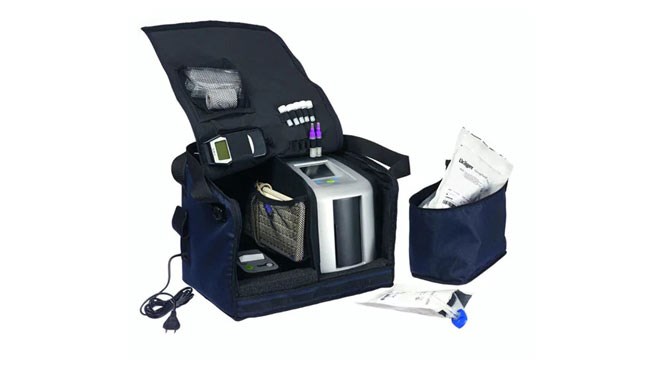Greater Sudbury Police have a new tool in their arsenal to detect drugged driving, but the device won't be used to detect impaired driving for everyone.
Sgt. Tim Burtt of the force's traffic unit says police have six Drager DrugTest 500 units, which he says resemble a Keurig coffee maker.
“It's still in its infancy,” Burtt said Wednesday. “The Drager 500 is going to be used for drug screening, but not for impaired driving investigations.”
Ontario's Attorney General's office have told police that the devices can be useful in detecting drug use among drivers not allowed to consume any amount of marijuana before getting behind the wheel.
That includes young drivers, commercial drivers and anyone with a graduated driver's licence. But the devices can't be used to lay criminal charges, only for breaking provincial offences.
“This is not a device that is used for evidentiary purposes for us,” Burtt said. “We can't form grounds (to lay charges) based on that. We still do it the old-fashioned way, which is through the standardized field sobriety technicians and drug recognition experts.”
While the Drager can detect a range of drugs by testing someone's saliva, Burtt said the devices will be used to determine the presence of cannabis and cocaine.
Unlike roadside breathalyzers, which give a pass or fail reading immediately, administering the Drager takes about 30 minutes. A handful of officers have gone to Southern Ontario for a one-day training course on how to operate the drug detectors.
“When they get back, they'll be training all my traffic officers,” Burtt said, adding they hope to begin roadside testing in April.
“First we're going to put it out into a field test at our environment and see how it works in what we would need to do. So we'll have it for ride spot checks, we'll have it for commercial motor vehicle blitzes and, when we need it for one of those three categories where we suspect that either THC or cocaine is involved.”
The device is the latest tool police have in the fight against impaired driving. Burtt said recent legislation changes allowing police to demand a breathalyzer test from drivers even if the driver doesn't show signs of impairment has also made an impact.
“That is a large deterrent now, because you can ask anytime about alcohol,” he said. “One of the scariest parts (so far) is designated drivers.”
In the past, when someone said they were the DD at a spot check, it was tough for police because the cars usually reeked of alcohol. Now that they can ask for a breathalyzer without cause, they're finding an alarming number of designated drivers who have been drinking.
“We did one spot check about a month ago and the 'designated driver' had been drinking quite a few,” he said. “Designated drivers are not supposed to be drinking. Well, now we can demand a sample of your breath because all I can smell is alcohol coming from that car.”



